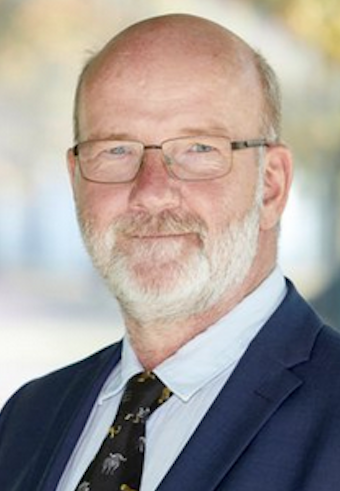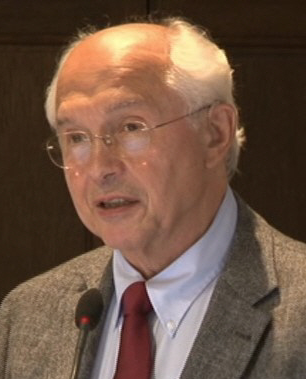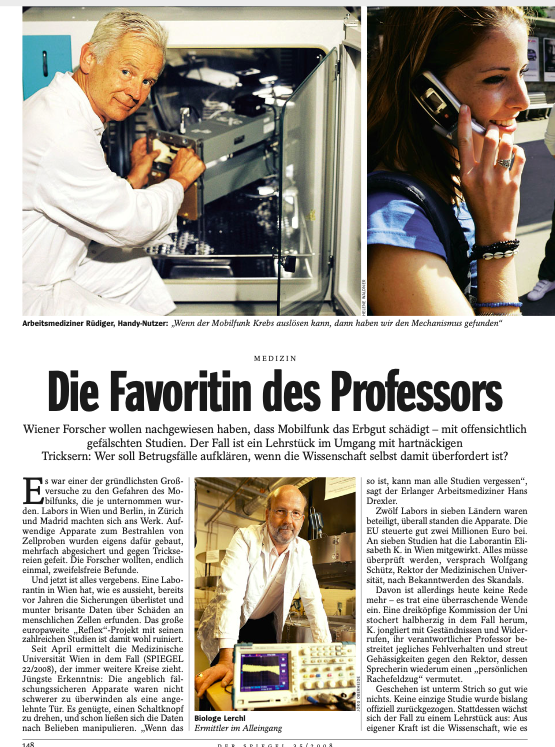A German court of appeals has ordered Alexander Lerchl to stop smearing the authors of two papers which show that mobile phone radiation can break DNA and possibly cause cancer. For more than a decade, Lerchl, a professor of biology at Jacobs University in Bremen, has charged, without evidence, that the experimental data from Hugo Rüdiger’s lab at the Medical University of Vienna (MUV) were fabricated.
In its long-awaited decision, dated December 11, 2020, and released at the end of January, the Hanseatic Higher Regional Court of Bremen threatened Lerchl with a fine of up to €250,000 (~US$300,000), or six months in prison, if he continues to falsely disparage the Rüdiger papers. The penalties would apply each time Lerchl violates the court order. Lerchl must also pay €20,000 in court costs.
Since 2007, Lerchl has repeatedly called for the two papers showing RF–induced DNA breaks to be retracted. The first, on 2G radiation, was published in Mutation Research in 2005; the second, on 3G radiation, appeared in the International Archives of Occupational and Environmental Medicine in 2008. Following extensive investigations beyond the original peer reviews, the editors at both journals refused. The papers remain in the scientific literature.
Rüdiger’s DNA experiments were part of the REFLEX* Project, a €3.1 million effort to assess the health risks of cellular phone radiation. Sponsored by the European Commission (EC), it ran from 2000 to 2004. A dozen labs in seven countries participated under the direction of Franz Adlkofer, then at the Verum Foundation in Munich. Over time, REFLEX became all but synonymous with the Rüdiger DNA studies.
“Lerchl failed to meet the required burden of proof that the REFLEX studies were in fact falsified,” the court stated in its 20-page opinion. The new decision cannot be appealed, according to the ruling.
“The allegations of forgery have now been proved to be fictitious,” Adlkofer told Microwave News in an email exchange. “Over the years, Alexander Lerchl never shied away from any kind of lie in order to achieve his goals. The time for consequences has arrived.” Adlkofer is a director of the Pandora Foundation, based outside Berlin. The foundation paid the costs of the litigation.
Lerchl has been the best funded lab researcher on RF health effects in Germany —and in all of Europe— over the last 20 years. (See “Rich Rewards for Bad Behavior”.) Now there are calls for his most recent government contract to be cancelled and that he be removed from an international advisory panel.
Lerchl did not respond to a request for comment.


Bremen decision may be the last round in the long-running Lerchl/Adlkofer (r) grudge match.
Statistical Reviews: No Evidence of Fraud
The Bremen verdict appears to be the end of a nasty legal battle that began in 2014. By then, Lerchl had already spent seven years criticizing Rüdiger’s work in scientific journals, popular magazines and Internet chatrooms. He had described the Vienna research as a “bad joke” and “an embarrassment.” He had issued press releases and self-published a book, Counterfeiters in the Laboratory and Their Helpers.
In May 2008, for instance, Lerchl told the German news magazine Der Spiegel that, “It is statistically and logically impossible that these data come from real experiments.” At the time, Spiegel, which had a circulation of over a million, sided with Lerchl. But the editors would later be forced to backtrack and concede —in an online addendum to the story— that independent reviews had not found “any evidence of the allegations of counterfeiting.”
As a result of his machinations, Lerchl forced seven independent statistical evaluations of the Vienna data. The editors of Mutation Research and the International Archives commissioned multiple reviews, the MUV ethics panel followed up with its own, and various oversight panels did the same. They all concluded that there was no proof of fraud.
Every time Lerchl lost a round, he appealed or cried foul and continued his campaign. When the journal editors refused to retract the papers, Lerchl reported them to the Committee on Publication Ethics (COPE), an oversight group based in London. When an MUV ethics panel found no evidence of data manipulation and declined to demand that the papers be retracted, Lerchl asked the Austrian Commission for Scientific Integrity (OeAWI) to investigate. He lost again.
MUV Rektor Joined Lerchl, But Later Backed Off
Early on, in 2008, Lerchl recruited the Rektor of the MUV, Wolfgang Schütz, the university’s top official and Rüdiger’s ultimate superior, to join his campaign. Schütz issued multiple press releases that impugned Rüdiger. In doing so, Schütz gave credibility to Lerchl’s charges and brought them to an international audience. Science magazine and the British Medical Journal were among those that covered the story. They all prominently featured Lerchl as the one who had blown the whistle on scientific misconduct. It became known as the Vienna Affair.
After all the judgments failed to support Lerchl’s claims of fabrication, the university retracted all of the Rektor’s press releases. They have been deleted from the MUV archives.
The Bremen appellate court commissioned its own analysis of the Rüdiger data —the eighth review, for those keeping count. When it went against Lerchl, he cried bias yet again, according to a statement by Adlkofer following the decision by the Bremen court.
The Last Straw
In 2014, nine years after the first Rüdiger paper was published, Lerchl raised the stakes. In a column for a lab trade magazine LaborJournal, he intimated that Rüdiger’s lab assistant, Elizabeth Kratochvil, should be in jail for fabricating the DNA data. Lerchl wanted to lock her up!
“Professor’s Favorite Girl” —headline in Der Spiegel, August 2008. The article insinuated sexual tension between Kratochvil and Rüdiger (top left). Lerchl is pictured below. That is not Kratochvil at top right.
Kratochvil had had enough. With Adlkofer’s financial support, she sued Lerchl for slander and won. In March 2015, a court in Hamburg ordered Lerchl to “cease and desist” making unsubstantiated claims of data falsification. LaborJournal, which had also been sued, deleted Lerchl’s writings from its Web site.
Lerchl refused to stop. He continued to make the same accusations over and over again. In the years that followed, Kratochvil and Adlkofer did battle with Lerchl in five different legal venues, including Germany’s top constitutional court.
The Bremen court’s threat of a steep €250,000 fine or jail time appears to be, in part, a reaction to Lerchl’s refusal to abide by the decision of the Hamburg court in 2015.
Is this the Last Chapter of the Vienna Affair?
Is this really the end of the legal battle and will Lerchl finally stop his baseless accusations of fraud?
“I do not see any chance that the Bremen judgment will be changed,” Adlkofer told me. Still, it would be a mistake to count Lerchl out. In the past, whenever he has faced a setback —whether in legal or scientific arenas— he has found a way to continue the fight.
“Lerchl will refrain from accusations in public, but in internal circles he will not stop,” predicted Michael Kundi. Kundi, an MUV professor emeritus, carried out one of the many statistical reviews of the Rüdiger data, at the request of Rektor Schütz and the university’s ethics panel. Like all the others, he found no evidence of fraud. Kundi is now a member of the Council of the Pandora Foundation.
“Lerchl’s crusade against REFLEX became an idée fixe,” Kundi told me in an interview. “Although the evidence speaks against him, he is convinced he is right,” Kundi said.
For instance, in January 2020, 12 years after the publication of the 2008 International Archives paper, Lerchl had still not let go. He called on Niels Kuster, the director of the IT’IS Foundation in Zurich, to retract it. IT’IS had provided the exposure system used by Kratochvil, and Kuster was a coauthor of the paper. “It’s late,” Lerchl chided, “but not too late to clean up.” Kuster refused.
“I am glad that this chapter of baseless accusations is finally closed,” Kuster told me last week. “Contrived controversy based on deceptive arguments, pernicious rumors, misinformation, defamation and unfounded conspiracy theories has no place in scientific discourse.”
Peter Hensinger, the vice chairman of Diagnose Funk, a German-Swiss environmental and consumer protection group, called the Bremen decision a “great success.” The group has long urged the German government to acknowledge the importance of the REFLEX project and to include the findings of DNA breaks in its evaluation of the health risks of mobile phones.
Careers Ruined, Research Forgone
Even if Lerchl does stop, he will have left a trail of broken careers and lost research opportunities. Rüdiger, who retired from the MUV in 2007 and then spent years defending the DNA papers, has completely withdrawn and not spoken about REFLEX in years. Kratochvil quit the MUV lab after working with Rüdiger for a decade. She is now a teacher.
Adlkofer blames Lerchl for the EC’s decision, in 2008, not to sponsor his proposed $5 million follow-up project, called MOPHORAD.† It received high scores on review and would likely have been funded had Lerchl not spread misinformation about REFLEX, Adlkofer said.
Others have suffered too. “Lerchl’s misinformation cost me ten years of productive scientific work,” said Wilhelm Mosgöller, a professor at MUV who ran two projects similar to Rüdiger’s. Mosgöller used the same cells and similar exposure equipment (also from the IT’IS Foundation) and was in close contact with Kratochvil and Rüdiger. He too saw RF effects on DNA —in his case, on DNA repair. The findings of the two projects were published in the International Archives of Occupational and Environmental Medicine in 2010 and in PLOS ONE in 2018.
“I was lucky,” Mosgöller told me, “because the careers and/or reputations of others —honest and uncorrupted colleagues—were substantially destroyed.” He added: “The Vienna Affair devalued all RF science, and I think it would be unethical for a mentor to recommend, or allow, a student to embark on an RF research project.”
Can RF Break DNA?
The real question is: Can RF in general, and cell phone signals in particular, affect DNA? It depends on whom you ask. A typical answer is ‘No, because the radiation lacks the quantum energy to break chemical bonds.’
That’s true, but there may be other ways to get the job done.
“I believe that RF does not need to have sufficient energy to break chemical bonds in order to induce DNA damage and thereby cause cancer,” Kundi told me in an e-mail last year.‡ Kundi is the former head of the MUV’s Institute of Environmental Health and has published extensively on cell phones and cancer.
As the papers showing RF–induced DNA breaks mount up, Kundi’s assessment is becoming the dominant view. It got a significant boost when the U.S. National Toxicology Program, NTP, reported seeing DNA breaks in some of the same animal tissues where tumors developed following RF exposure in its $30 million RF–cancer project.
Just a few days ago, on February 4th, Henry Lai —who was the first, with N.P. Singh, to show that non-ionizing radiation can break DNA 26 years ago— published an updated review on RF–genotoxicity in Electromagnetic Biology and Medicine. According to his latest count, as of January 2021, there have been 361 papers on the topic. Of these 237 (66%) reported effects and 124 (34%) did not.
See also: “Rich Rewards for Bad Behavior”
Coming soon: “Lerchl’s Unattainable Prize: IARC’s RF Panel”
_____________________
https://microwavenews.com/news-center/german-court-moves-silence-critic-rf-dna-breaks
Spread the word:
- Click to share on Facebook (Opens in new window)
- Click to share on Twitter (Opens in new window)
- Click to share on WhatsApp (Opens in new window)
- Click to share on LinkedIn (Opens in new window)
- Click to share on Pinterest (Opens in new window)
- Click to share on Reddit (Opens in new window)
- Click to share on Tumblr (Opens in new window)
- Click to share on Telegram (Opens in new window)
- Click to print (Opens in new window)

